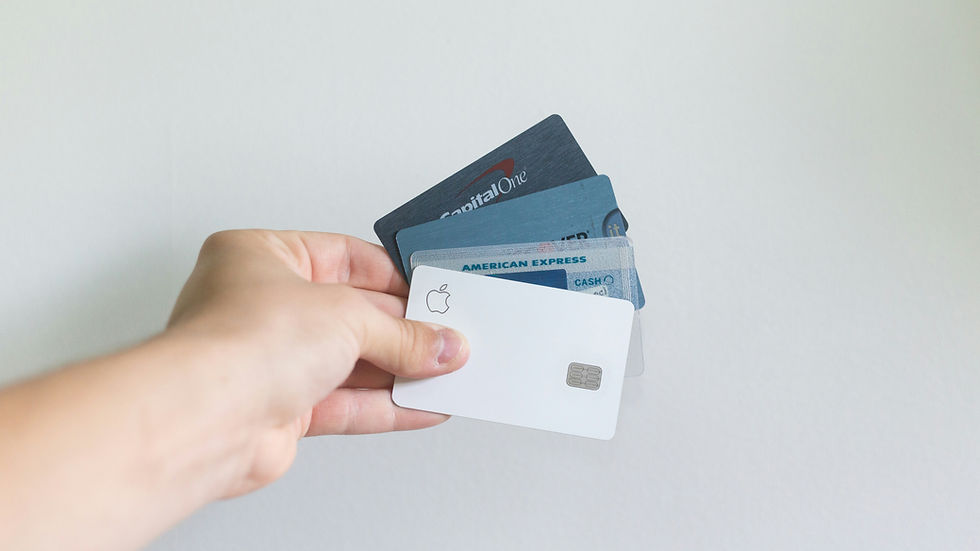How to Save Money When Buying a Home: Essential Tips and Strategies
- Lucy Baldwin

- Jul 25, 2024
- 3 min read
Buying a home is one of the most significant financial decisions you'll ever make. It's exciting, but it can also be expensive and daunting. However, with careful planning and smart strategies, you can save a considerable amount of money during the home-buying process. Here are some essential tips to help you make the most of your investment and save money when buying a home.
Get Pre-Approved for a Mortgage
Before you start house hunting, get pre-approval, or decision-in-principle. Pre-approval gives you a clear picture of what you can afford, helps you set a realistic budget, and shows sellers that you are a serious buyer. This can give you an advantage in negotiations and help you avoid falling in love with a home that's out of your price range.
Shop Around for Mortgage Rates
Interest rates can vary significantly from one lender to another. Take the time to shop around and compare rates from multiple lenders. Even a slight difference in interest rates can lead to significant savings over the life of your mortgage.
Get Bespoke Mortgage Advice for Your Exact Needs
We’re experts at giving professional advice to help recommend the mortgage that fits your exact needs. We’ll take time to get to know your latest financial situation to help us to recommend the deals that could give you the solution you need – and we’ll be able to search from a wide range of deals that aren’t available on the high street. Your existing lender will be likely to contact you with offers but be sure to seek our professional advice before making any decisions.
Consider a Higher Deposit
A higher deposit payment can save you money in several ways. First, it reduces the amount you need to borrow, which can lower your monthly payments and the total interest paid over the life of the loan. It also reduces your loan-to-value and mortgage and mortgage rate offered.
Work with a Knowledgeable Real Estate Agent
A skilled real estate agent can help you find the right home at the best price. They have local market knowledge, can negotiate effectively on your behalf, and help you navigate the buying process. Choose an agent who has a good track record and is familiar with the area where you want to buy.
Negotiate on Price and Terms
Don't be afraid to negotiate. This includes not only the purchase price but also other aspects of the deal, such as closing costs, repairs, and contingencies. Be prepared to walk away if the terms aren't favourable. Remember, there are always other homes on the market.
Consider a Fixer-Upper
Buying a home that needs some work can be a great way to save money. Fixer-uppers are often priced lower than move-in-ready homes. If you're willing to put in some effort (or hire professionals), you can increase the property's value significantly. Just be sure to get a thorough inspection to avoid unexpected costs.
Utilize First-Time Homebuyer Programs
If you're a first-time homebuyer, you may qualify for special programs that offer lower down payments, reduced interest rates, or financial assistance with closing costs.
Save on Hidden Costs
Closing costs can add up to 2-5% of the home's purchase price. Be mindful of other expenses like moving costs, new furniture, utility deposits, and homeowner association fees or estate fees for new-build homes, for example. Budget for these costs in advance so they don’t catch you off guard. Look for ways to save, such as renting a van instead of hiring a full-service removal firm or buying gently used furniture to cut costs on getting the final look you’re seeking. You can save money by shopping around for services like home inspections, title insurance, and appraisals. Additionally, you can negotiate with the seller to cover some or all of these costs.
Be Mindful of Additional Costs
When budgeting for your new home, don't forget about additional costs such as property taxes, homeowners insurance, maintenance, and utilities. Understanding these costs upfront can help you avoid financial surprises and plan accordingly.
Think Long-Term
When buying a home, consider your long-term plans. Choose a property that not only fits your current needs but also has the potential for appreciation and resale value. This foresight can help you build equity and make a profitable sale in the future.
Buying a home is a significant investment, but with careful planning and smart strategies, you can save money and make a wise financial decision. Remember, the goal is not just to find a home you love, but also to make a financially sound investment.




Comments